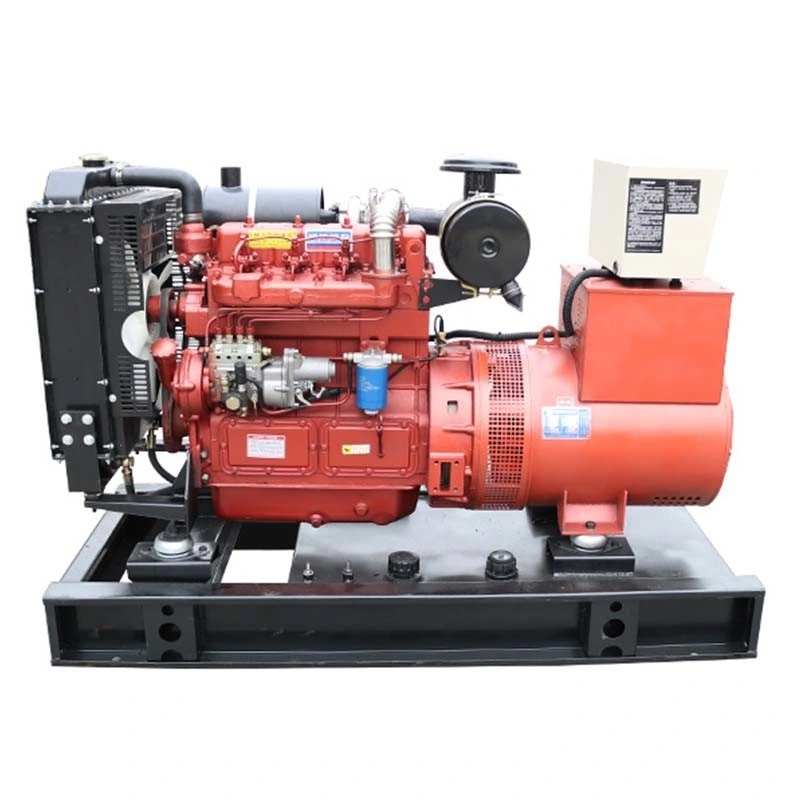Introduction
In today's world, where energy consumption is increasing rapidly, the need for reliable and efficient power sources has never been greater. Diesel generators have long been a popular choice for providing backup power in various applications due to their reliability and durability. However, with the rising concerns about environmental impact and fuel costs, there is a growing demand for diesel generators that are not only reliable but also fuel-efficient. In this article, we will delve into the world of diesel generators and explore ways to maximize their fuel efficiency.
Understanding Diesel Generators
Before we discuss fuel efficiency, let us first understand how diesel generators work. diesel generator efficiency is a combination of a diesel engine and an electric generator that converts mechanical energy into electrical energy. The diesel engine powers the generator, which produces electricity through electromagnetic induction. Diesel generators are commonly used in various settings, including residential homes, commercial buildings, construction sites, and industrial facilities, to provide backup power during outages or as a primary power source in remote locations.

Benefits of Diesel Generators
Diesel generators offer several advantages that make them a preferred choice for many applications. Some of the key benefits include:
1. Reliability: Diesel generators are known for their reliability and durability, making them a dependable source of backup power during emergencies.
2. Power output: Diesel generators can produce a high amount of power, making them suitable for powering heavy-duty equipment and machinery.
3. Fuel availability: Diesel fuel is widely available around the world, making it easy to refuel diesel generators in remote locations.
4. Longevity: Diesel engines are designed to last a long time with proper maintenance, providing a cost-effective power solution in the long run.
Challenges with Fuel Efficiency
While diesel generators offer many benefits, they also come with some challenges, particularly in terms of fuel efficiency. Diesel fuel is a valuable resource that can be expensive and harmful to the environment if not used efficiently. Inefficient fuel consumption can lead to higher operating costs and increased carbon emissions, which is a concern for both businesses and the environment.
Maximizing Fuel Efficiency
To address the challenges associated with fuel efficiency, there are several strategies that can be implemented to maximize the fuel efficiency of diesel generators. These strategies involve optimizing the operation of the generator, maintaining the engine properly, and utilizing advanced technologies for better fuel management. Let's explore some of these strategies in detail:
1. Proper Sizing: One of the key factors that influence fuel efficiency is the size of the diesel generator relative to the load it is powering. Oversized generators can lead to inefficient fuel consumption, as they operate below their optimal load capacity. On the other hand, undersized generators may struggle to meet the power demand efficiently. It is important to size the generator correctly based on the expected load requirements to ensure optimal fuel efficiency.
2. Load Management: Efficient load management is essential for maximizing fuel efficiency. Diesel generators operate most efficiently at around 70-80% of their rated capacity. By properly managing the load and avoiding unnecessary idling, fuel consumption can be minimized. Implementing load shedding strategies and using automatic transfer switches can help optimize the generator's performance and reduce fuel consumption.
3. Regular Maintenance: Proper maintenance is crucial for ensuring the optimal performance and fuel efficiency of diesel generators. Regular servicing, including oil changes, filter replacements, and tune-ups, can help prevent engine wear and improve fuel efficiency. Monitoring fuel quality, checking for leaks, and inspecting the exhaust system are also important maintenance tasks that can contribute to fuel efficiency.
4. Fuel Quality: The quality of diesel fuel used in generators can have a significant impact on fuel efficiency. Contaminated or low-quality fuel can lead to poor engine performance and reduced fuel efficiency. Using clean, high-quality diesel fuel and storing it properly can help maintain the efficiency of the generator and extend its lifespan.
5. Advanced Technologies: Advancements in technology have led to the development of fuel-efficient diesel generators with features such as electronic control systems, variable speed drives, and energy management systems. These technologies help optimize fuel consumption, reduce emissions, and improve overall efficiency. Investing in modern diesel generators with advanced features can result in significant fuel savings over time.
6. Hybrid Systems: In some applications, combining diesel generators with renewable energy sources such as solar or wind power can further enhance fuel efficiency. Hybrid systems leverage the strengths of both diesel generators and renewable energy sources to provide a reliable and sustainable power solution. By integrating renewable energy into the system, diesel generators can operate more efficiently and reduce fuel consumption.
Conclusion
Diesel generators play a vital role in providing backup power in various settings, but maximizing their fuel efficiency is essential for reducing operating costs and environmental impact. By implementing strategies such as proper sizing, load management, regular maintenance, and advanced technologies, fuel efficiency can be significantly improved. Investing in fuel-efficient diesel generators not only saves money in the long run but also contributes to a cleaner and more sustainable energy future. With careful planning and optimization, diesel generators can continue to be a reliable and efficient power source for years to come.
